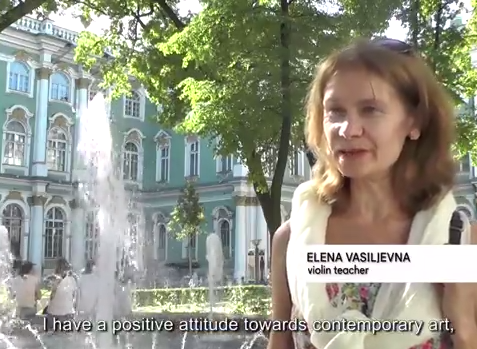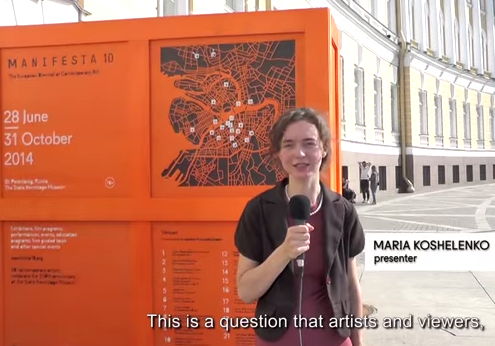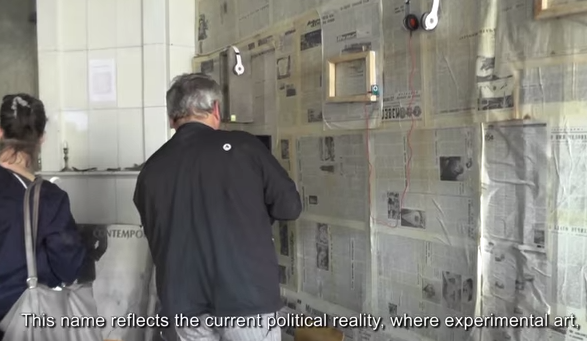
We asked a few of the participants from the program about their experience of the M10 TV course.
Stas Spassky,
From the second intake of students
"It was very helpful to have this practical task. During the process of making the report's plot, you felt that what the lecturers were talking about in theoretical part of the training was suddenly at your fingertips. For this profession, the more important skills are the practical ones: montage, shooting and the script writing.
This educational project is different from others given its concrete goal of education - the shooting of one scene of a proposed topic. The bulk of such intensive educational programs consist mainly of theoretical material, to the extent that it kills journalism - for journalism is a craft after all, not a science. Moreover, the mere fact that the theme for this course on cultural journalism was the Manifesta exhibition supersedes all other courses."
Watch Stas Spassky's video here about the perception of St. Petersburg's residents on MANIFESTA 10 and contemporary art.
Veronica Bragin,
From the third intake of students
"The most useful during training seemed to me the workshops by the teachers from SPBGUKiT and our curator Anastasia Izmaylovoy. Thanks to their attention, their active support and easily comprehensible explanations of the process of shooting reportage, the field has become much more accessible. In my opinion, it is the skills that we received during our workshops which allowed our reports to stay at a really high quality and cover interesting stories. Of course, this area is attractive and I would like to continue to develop in this direction, to hone skills of shooting, editing. However, a lot also depends on the availability of jobs, how our knowledge can be applied to work in television.
I finished the learning process with enough information that, under normal conditions, would have been presented over several years. We were so immersed in the process, all the thoughts and ideas were focused towards a result. It was nice that the reknowned journalists and professionals from the field of television and film were so friendly and so openly shared their knowledge, experience and outlook on life."
|
|

We also spoke to some of the M10 TV workshop leaders and understand what they hoped to teach the participating students.
Valery Nechay,
Journalist, producer of radio station Echo of Moscow in St. Petersburg
"The main problem faced by newcomers to journalism is that they cannot find a common language with the audience. They use in their speech a lot of complex structures, incomprehensible to the simple layman – they think about their wording and completely forget that their main focus should be to interest the viewer, not show off his personal knowledge. How to simplify the information so that it is understandable to the layman, but in a way that it remains interesting to everyone? To be successful you need to very clearly understand and represent your audience: their level of interest and involvement - and be very clear with which words you choose."
Andrey Smirnov,
Host of 'Okno v Kino' (Window onto film) on the TV channel "St. Petersburg"
"During my workshop the students were able to realise that television journalism is not just news, but also can be used as an instrument for creating programs of cultural subjects."
Natalia Efendiyeva
Journalist and columnist of the culture department IA Regnum.
"From combining my work as the press attache of the theater with my work for the Department of Culture browser IA Regnum, I can use this experience to introduce students to more voluminous and diverse information about the nuances of communication between journalists and employees pr or press services, about the intricacies of doing interviews with speakers at various levels of professional ethics of communication. Accordingly, the students received practical information first-hand, in order to use it in their further work."

Above a frame from Natalya Chekhoeva's report for MANIFESTA TV on the Public Program's 'Apartment Art as Domestic Resistance' project
where she interviews the project's curator Olesya Turkina. See the full report here and more videos to watch below.
|
|










